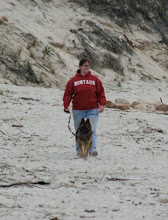In my opinion there are three trends/phenomena of human nature that I think help to understand (not explain) the worsening behavior by many people online. We have all seen it ..... you go online to read a message board, article, blog, or social media feed and you see it immediately: nastiness and negativity that would not be tolerated in normal every day interaction. So how is it that we can behave ourselves at work and other situation and then we come online and become rude crass monsters? Because I have to assume a lot of people do not behave in real life the way they do online. They can't.
1.
In-group Preference
In South Pacific Emile De Becque so eloquently sang:
1.
In-group Preference
In South Pacific Emile De Becque so eloquently sang:
You've got to be taught before it's too late,
Before you are six or seven or eight,
To hate all the people your relatives hate,
You've got to be carefully taught!
But I don't know that you really do have to be so carefully taught. I think instead it comes naturally to humans to dislike/mistrust. Rather it is more likely you have to be taught not to hate. Studies have shown that babies and toddlers have a built in preference for in-group people. It's not mean; it's really just self preservation. Show a toddler two dolls (puppets). Have one puppet announce it likes cookies and another announce it likes spinach. Later bring out the same two puppets and the toddler will choose (most of the time) to play with the puppet it identifies with the most. Now this preference doesn't equal hating the other group but it can. That's what socializing is for, it teaches us to trust and realize we should not limit ourselves to the group.
2.
Negativity Bias
I'm sure that our negativity bias has roots in evolution. We remember negative events more clearly and they are easier to recall, probably so that developing humans could remember the different perils faced while hunting and gathering. Studies have shown that we remember negative experiences/feedback four times stronger than positive or neutral events. Neurological findings show that negative experiences are held in awareness longer and imprinted onto long term memory faster than positive.
As children we are told to be nice to each other and that becomes a standard then all of a sudden you reach high school and the idea of critical thinking is introduced. Now you can be mean! You actually have permission to be mean. Because if you say something nice you are being childish and just following what you were taught to do as children after all if you can't say something nice don't say anything at all, right? So under the guise of critical thinking you can say anything. We even begin to give more weight to negative remarks and view those who give negative feedback as smarter. Somehow it seems more important when people are negative. We hear 'critical thinking' and focus on critical as in being disapproving instead of as in analyzing. We remember the negative criticism more strongly so it must have been more important, the details are clearer in our minds. That helps to explain a tendency to be negative but I'm not just talking about being negative I am talking about being down right rude. Negative comments have their place, we learn from them. But negative after negative and insults we see thrown around like nothing goes beyond anything that will teach a valuable lesson.
3.
Anonymity
On many internet sites people have pseudo names protecting their identity. This gives them the sense that they can say anything they want in total safety. Even on sites like facebook where they do use their real name there is still a freedom to say anything because chances are you will never see/meet the person. Also there is a feeling that the people we are talking to aren't real. After all they are faceless unknowns not real people who we know.
On the internet you are your own in-group, all alone with just a computer. So you find yourself online talking with strangers, not members of your group. You want to sound smart and you want to make an impression. So the negative comments start. After all no one is ever going to see you or know who you are. Behind that keyboard you are safe to be as smart as you want. Not only do negative comments prove that you have 'critical thinking' skills but people will remember them better. You know this from your own experiences (no doubt). And the person who you are commenting too, who are they? They are a faceless person they might as well not even be real. In fact in one internet bullying case on the news that was exactly the sentiment of the aggressors. It was all said online. That isn't even real. But it is real. It is very real. And the behavior exhibited online is now spreading beyond the internet.
I wonder why is it that some need to see a face and hear a name to care about others. Why can't knowing they are another person with thoughts, feelings, friends, and family be enough for us? Maybe before we post online we should ask ourselves: "would I say this if I were looking this person in the face?" because if the answer is no then you shouldn't say it online.
This brings me to a question that I have found myself asking over an over: is our connection to others so fragile?

No comments:
Post a Comment